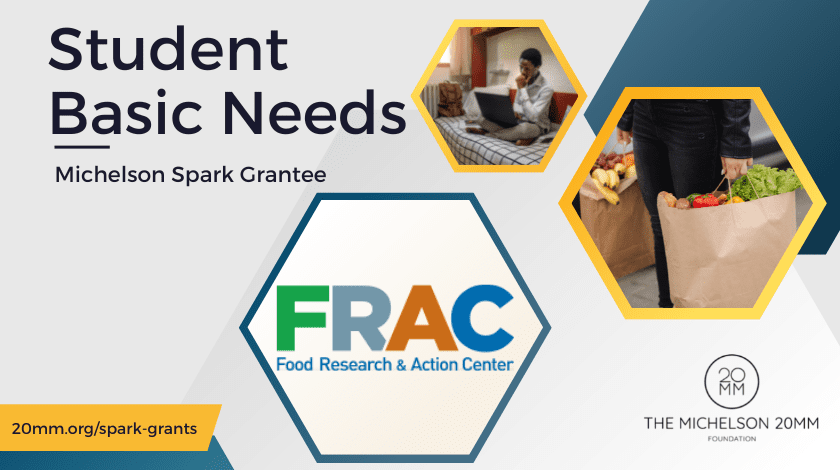The federal government first provided food stamps as early as the 1930s. In August 2022, the Supplemental Nutrition Assistance Program (SNAP) served more than 41 million people nationally, with nearly 4.9 million in California. Although SNAP has a longstanding history of helping to address food insecurity in America, data suggest that it has also historically failed to address food insecurity among California’s postsecondary study body. While one out of every three postsecondary students in the state are food insecure, only 18 percent of the state’s students participate in California’s version of SNAP, CalFresh, as the California Policy Lab reports. According to the Century Foundation, across public and private institutions, eligible California undergraduates leave an estimated $100 million in CalFresh benefits unclaimed every month.
One of the reasons for unclaimed benefits is due to the complex requirements for most college student SNAP applicants. Prior to December 27, 2020, students enrolled more than half the time needed to work 20 hours a week or participate in work study in order to qualify for SNAP. A temporary COVID-19 enactment, however, expanded SNAP to students with an Expected Family Contribution (EFC) of $0 and students who were simply eligible for federal or state work-study. That temporary expansion is set to expire 30 days after the COVID-19 public health emergency ends, which puts at risk continued SNAP benefits for hundreds of thousands of students in California.
Recognizing the importance of this eligibility expansion, the Food Research & Action Center (FRAC), a 2022 Michelson Student Basic Needs Spark Grantee, will leverage its grant to ensure student hunger is not collateral damage of an ending public health emergency. To do so, they will lead national educational efforts and support state partners, particularly in California, in a multi-layered strategy to prevent the looming hunger cliff for students by making permanent changes to ensure equitable SNAP access for millions of students.
“With the rising costs of college and inflation, student hunger is at an unprecedented level. Students should not have to decide between putting food on the table for their families or buying textbooks and registering for classes,” Miguel Leon, Director of Programs and Strategic Initiatives at the Michelson 20MM Foundation said. “Ensuring the expanded SNAP eligibility persists beyond the pandemic would help millions of students continue in their studies and graduate, forging a brighter future for themselves and their families.”
In addition, FRAC will launch a public awareness campaign aimed at decision makers at the state and federal levels. It will focus on:
- Communicating the importance of making the temporary expansion of SNAP eligibility permanent;
- Producing a brief to be shared widely as part of the campaign and track audiences reached; and
- Compiling student and campus leader experiences with SNAP that could help build the case for making the SNAP eligibility expansion permanent and leverage their public awareness campaign to increase understanding of SNAP in California.
Please join us in welcoming FRAC as a Michelson Spark Grantee! We eagerly await sharing the outcomes of their work.
Michelson 20MM is a private, nonprofit foundation seeking to accelerate progress towards a more just world through grantmaking, operating programs, and impact investing. Co-chaired and funded by Alya and Gary Michelson, Michelson 20MM is part of the Michelson Philanthropies network of foundations.
To sign up for our newsletter, click here.

